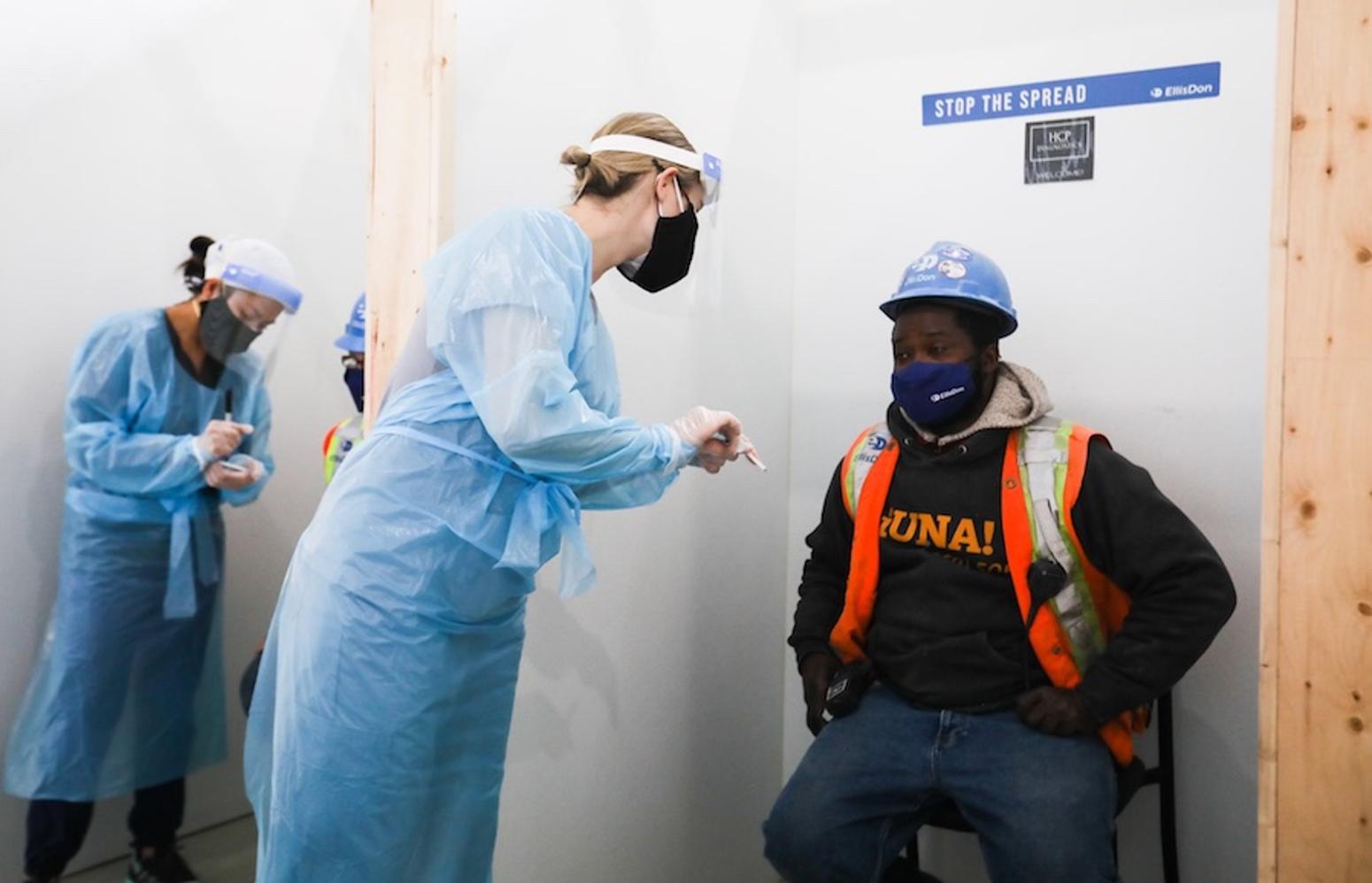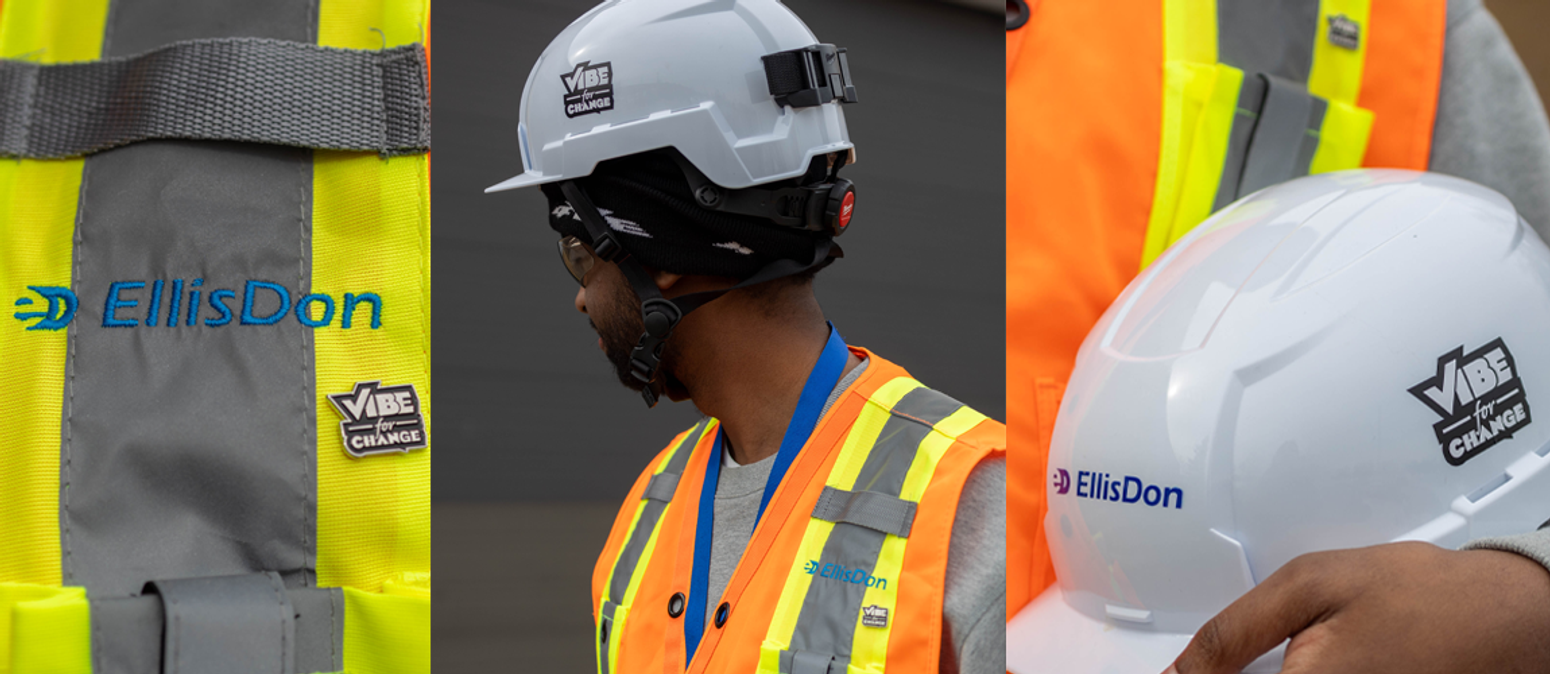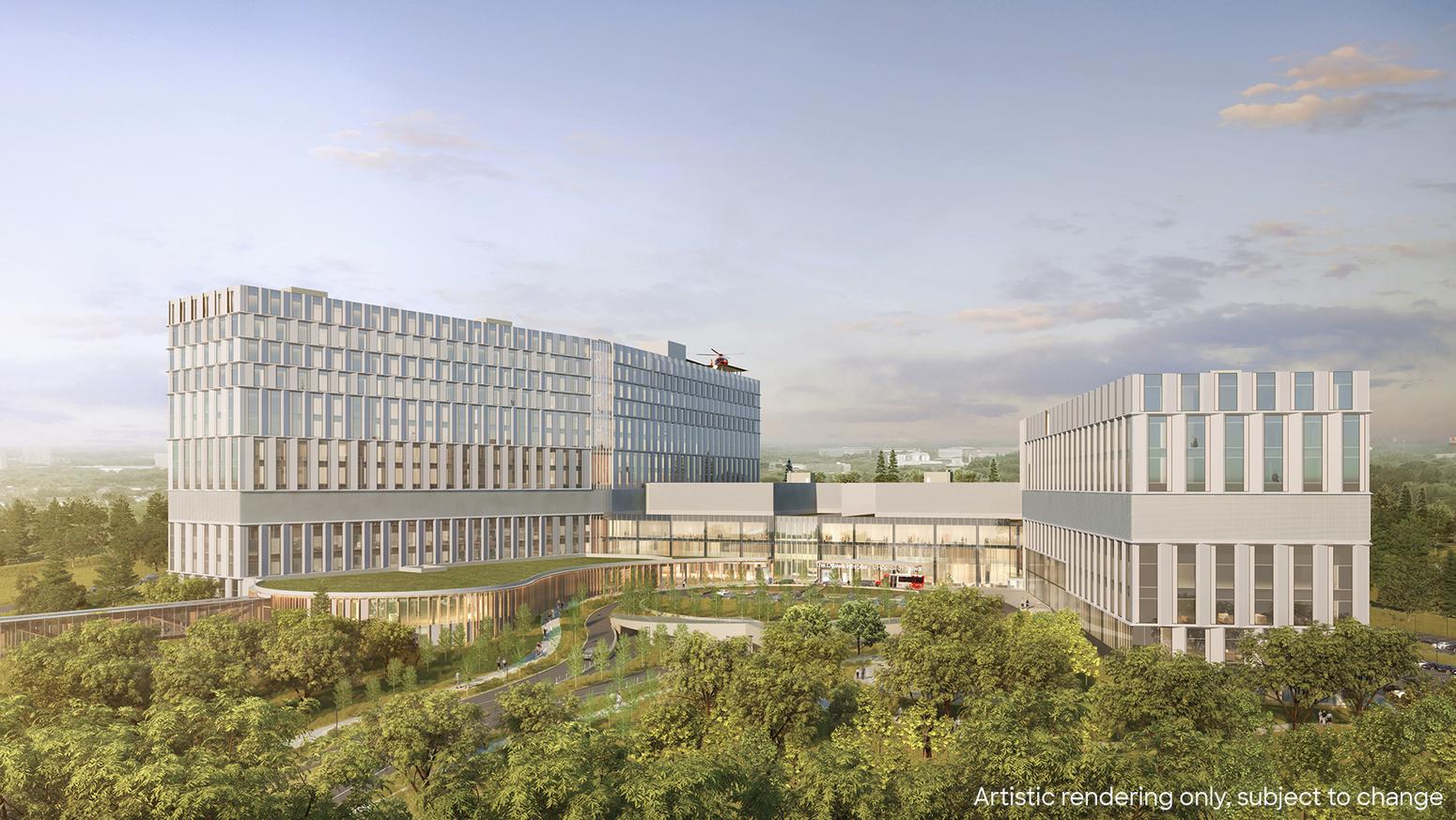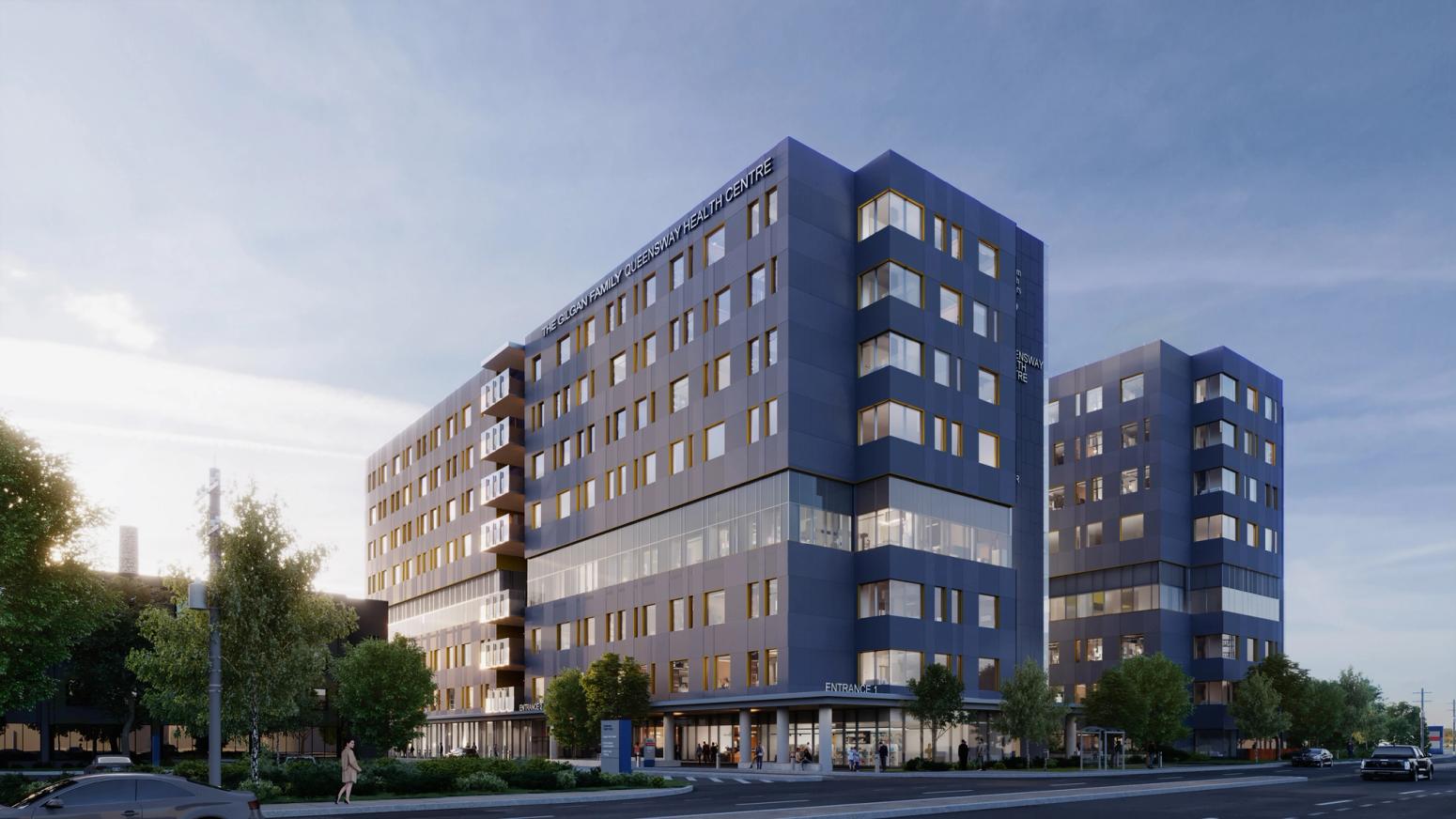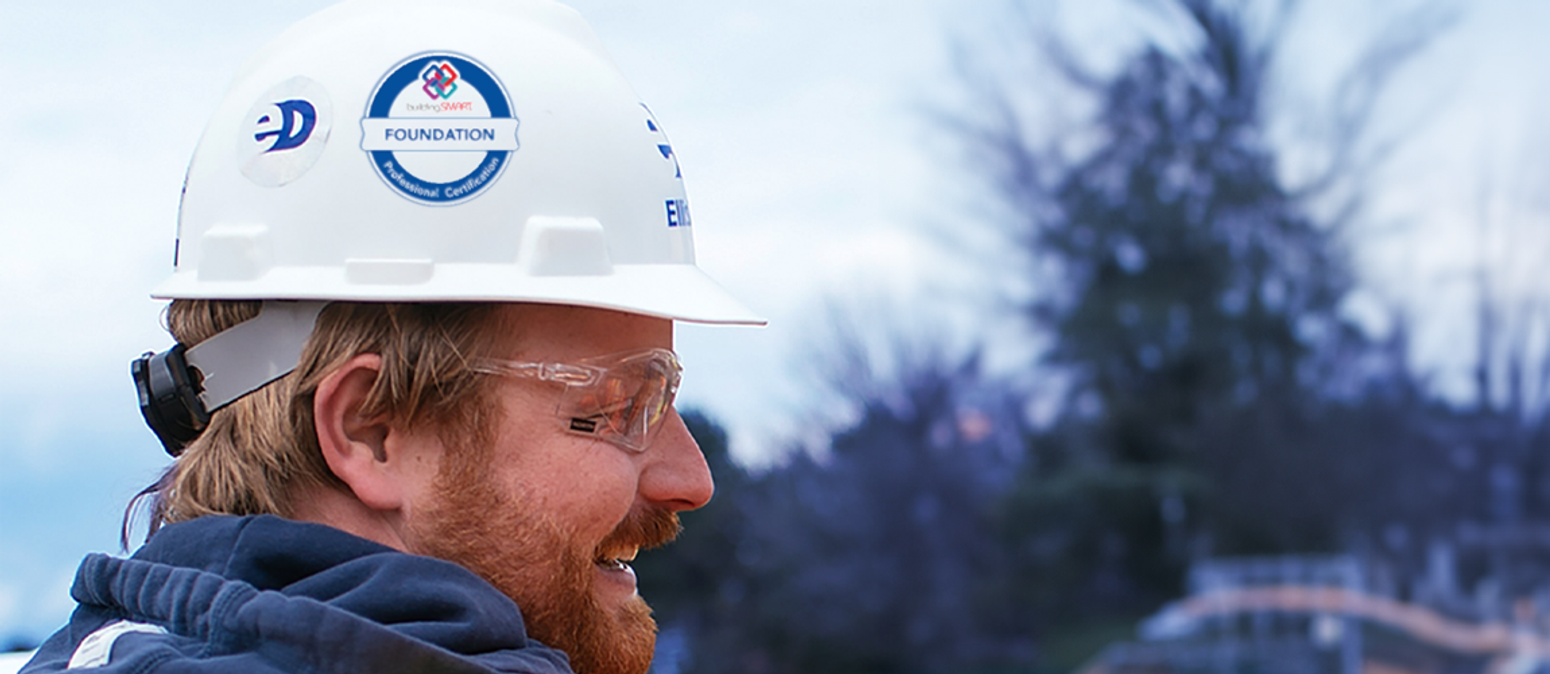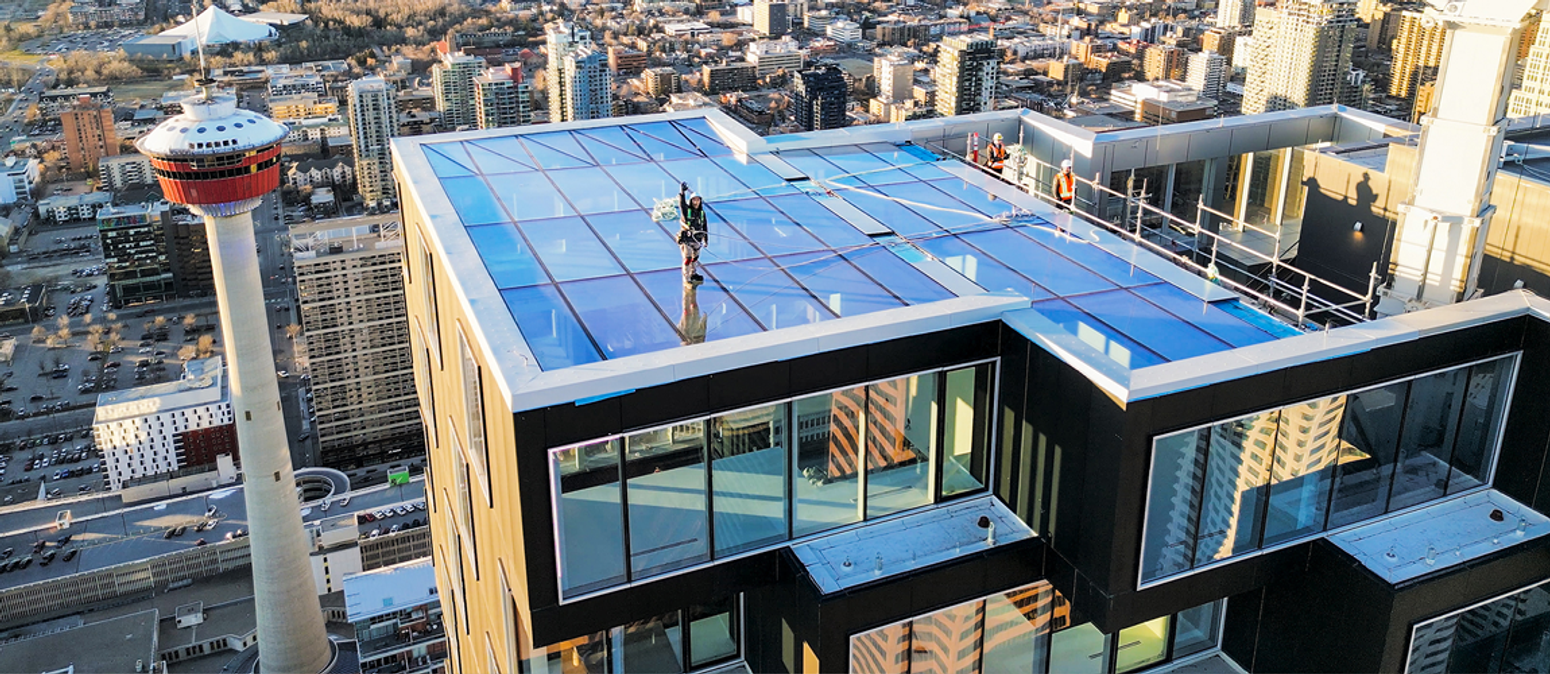News
New COVID-19 Tests, Rules Ramp Up in North America
***Update since article written:
EllisDon has now completed over 80,000 rapid tests and are conducting about 10,000 a week at our construction sites in the GTA. The use of rapid tests have been effective in the early identification of asymptomatic Covid cases and helping to limit the spread.By Scott Van Voorhis and Bruce Buckley for Engineering News-RecordOne year after COVID-19 became prevalent enough in North America to shut down many construction projects and require new jobsite safety protocols, efforts are still ramping up in Canada and the U.S. to get more workers tested and vaccinated, whether employer generated or government mandated.Ontario is rolling out Covid-19 rapid antigen testing at construction sites across the province to quickly determine COVID-19 infection, with building contractor giant EllisDon piloting the effort late last year at its sites.The Mississauga-based firm is now doing 8,000 rapid antigen tests a week at various construction sites across Ontario, including at The Well mixed-use project in Toronto, the province’s largest construction project, said Steve Chaplin, vice president for health, safety and the environment. It includes 1.1 million sq ft of office, 500,000 sq ft of retail and 1,700 residential units in six buildings connected to a 3-level retail base and is said to be Canada's most ambitious current mixed-use development.EllisDon's total is out of 40,000 tests being conducted each week at construction worksites across Ontario as the province ramps up rapid testing in key industries. It launched a pilot rapid testing program in December, working with the Ministry of Labour, Training and Skills Development, the United Association of Plumbers & Steamfitters Local 46, and International Union of Painters and Allied Trades District Council 46.Despite some test accuracy issues reported, a recent survey by the Canadian Federation of Independent Business said 63% of small businesses would use it to stay open; with 66% of construction sector businesses indicating they would do so. The new rapid testing initiative, along with screening measures, helped tamp down a budding outbreak at The Well, a 3.1-million sq ft mixed-used development downtown.
Construction Rollout in March
Based in part on those results, the province in February announced plans to distribute rapid testing kits to an array of essential sectors, with industry-wide testing for the construction industry in March.Ontario has deployed nearly 2 million rapid antigen tests and 175,000 rapid diagnostic tests to essential workplaces and highly vulnerable such as long-term care homes, according to a province statement. "At scale, the province will be deploying approximately 1 million tests per week across targeted sectors," it added.“We were one of the early adopters,” said Steve Chaplin, EllisDon vice president of heath, safety and environment.In the case of EllisDon’s work on The Well, there were 16 workers out of the 420 the company oversaw on its portion of the project tested positive for the coronavirus from late December to Jan 29. Dozens more tested positive on other sections of the nine-building complex, the Toronto Star reported.However, new cases came to a halt after EllisDon rolled out rapid testing the week of Jan. 25, with the construction services company administering 840 tests, Chaplin said.Still, there were just a few of construction sites in the Toronto area that saw a post-holiday jump in the number of coronavirus cases, he said.EllisDon is now conducting rapid tests at a total of 16 sites in the Toronto area, with a total of 28,000 tests conducted so far.
Controlling Cases
Since the start of the pandemic, the construction sector in Ontario has seen 150 coronavirus cases, said Kalem McSween a ministry spokesperson.That compares to more than 2,000 in the agricultural sector and more than 1,000 in the food, textile and related manufacturing sectors, according to Ontario’s workplace compensation board.“Our COVID-19 rapid antigen screening program across metropolitan Toronto has been quite successful in early identification of presumptive positives and limiting potential further spread and transmission,” Chaplin said.Under the program, Ontario officials are providing the nasal swab test kits – the Abbott Panbio Antigen Screen – with results as quickly as 15 minutes.The downside of antigen testing is that it is less accurate, so positive results must be confirmed using PCR testing, Chaplin said. It can take two or three days with PCR testing, but it can also detect an infection even in asymptomatic individuals through RNA, or genetic material.EllisDon, in turn, has picked up the tab for the health care staff needed to administer the tests, a commitment of hundreds of thousands of dollars.Still, the company initially encountered a significant obstacle to its testing drive, with some workers reluctant to agree to get tested.
EllisDon Shifts to Required
In a key decision, EllisDon in early January decided to shift from a voluntary testing program to a required one.EllisDon’s Chaplin noted that getting buy-in from local building trade unions was key on this, with daily discussions that included sharing with labor leaders the case count.That communication is helpful, when, inevitably, a worker balks at getting tested, which is now required to gain entry to the worksite.“This is a common shared interest – it is a shared responsibility,” Chaplin said. “They want to keep their member safe. At the end of the day, they want the same things we want.”Patrick Dillon, business manager and secretary treasurer of the Provincial Building and Construction Trades Council of Ontario, said the union is fully onboard with rapid testing, and with unions starting to use it at their training centers.The crisis also cast a helpful light on hygiene on construction sites, which now have access to hot and cold running water is required by the rules, but not always available, he said.“It’s been a good thing – it has turned up some numbers at the job sites,” Dillon said. “Not dramatic, but a few, which is a good thing. It means the virus is identified and people were then isolated and didn’t get spread further.”Meanwhile, in Alberta, energy giant Suncor is ramping up rapid testing for hundreds of workers coming onto sites for facility maintenance through the summer. The firm is set to receive 100,000 test kits from the provincial government, with deployment also to other firms in the sector.Rapid antigen tests also have been deployed to businesses in Quebec and Nova Scotia, but construction was not a major focus.
Federal OSHA Standards Weighed
In the U.S., testing has been largely driven by firms and clients. Dallas mechanical subcontractor TDIndustries began offering in-house COVID-19 tests to employees last summer. As part of a broader virus safety strategy, the firm partnered with medical services provider Medcor to support its health and safety team, says Jamie Dabbs, director of safety.Testing was required, he says, not only to meet the firm’s own protocols, but also because of demand from some project owners.“Some jobsites would require a negative test to come on, regardless of exposure,” he says. Based on recommendations from Medcor, the company chose to use PCR testing rather than rapid-antigen testing, based on accuracy. Over time, as more data on testing became available, the team decided to primarily use rapid antigen testing, which could yield results in under an hour. If an employee showed virus symptoms, a PCR test would be used.Meanwhile the U.S. Labor Dept.. Occupational Safety and Health Administration is expected to issue temporary emergency standards on COVID-19, based on President Joe Biden’s January executive order. While the agency missed the specified March 15 deadline, new Labor Secretary Marty Walsh appeared to back the standards during his February confirmation hearing, when pressed on the issue by Sen. Tammy Baldwin (D-Wis.).OSHA has not published a draft of the standards, but Some observers speculate on parallels with California’s emergency temporary standards, in effect since late November.California "requires employer-funded COVID-19 testing during work hours, mandates paid leave, and potentially brings unsuspecting employers into the Respiratory Protection standards," said Courtney Malveaux, principal at law firm Jackson Lewis P.C. in a March 18 National Law Review analysis. "Employers nationwide may need to prepare Infectious Disease Preparedness and Response Plans and train employees accordingly, with little time to prepare."Employers in the state must establish, implement and maintain a COVID-19 prevention program. If a workplace outbreak is identified, they must offer testing at no cost to employees and track virus cases, while also maintaining employee confidentiality.Malveaux predicts legal challenges from business groups if the federal emergency standards mirror those in California too closely.
